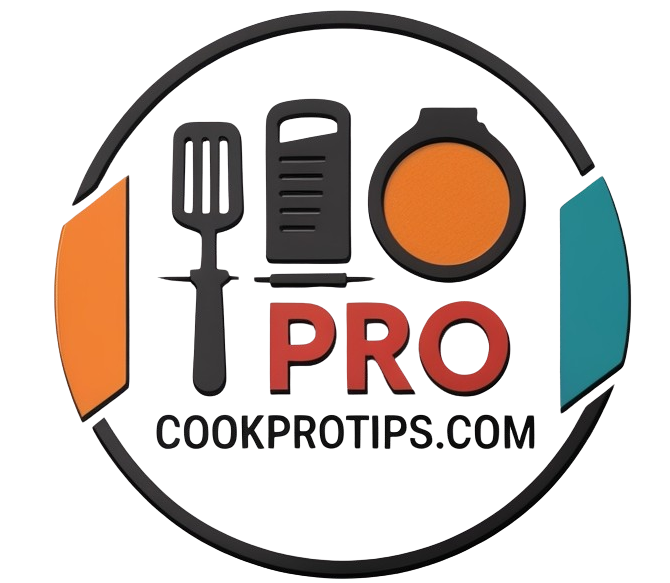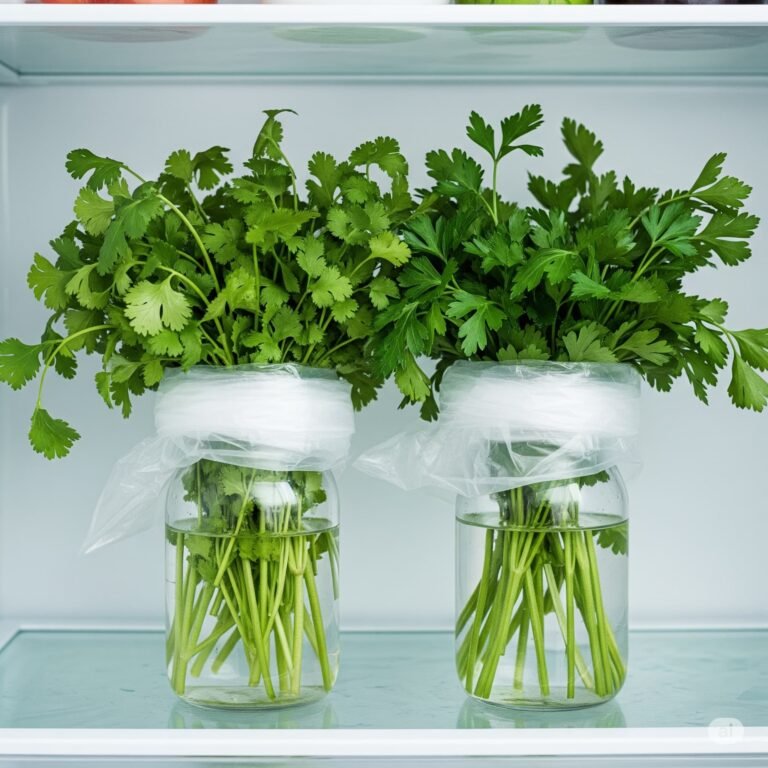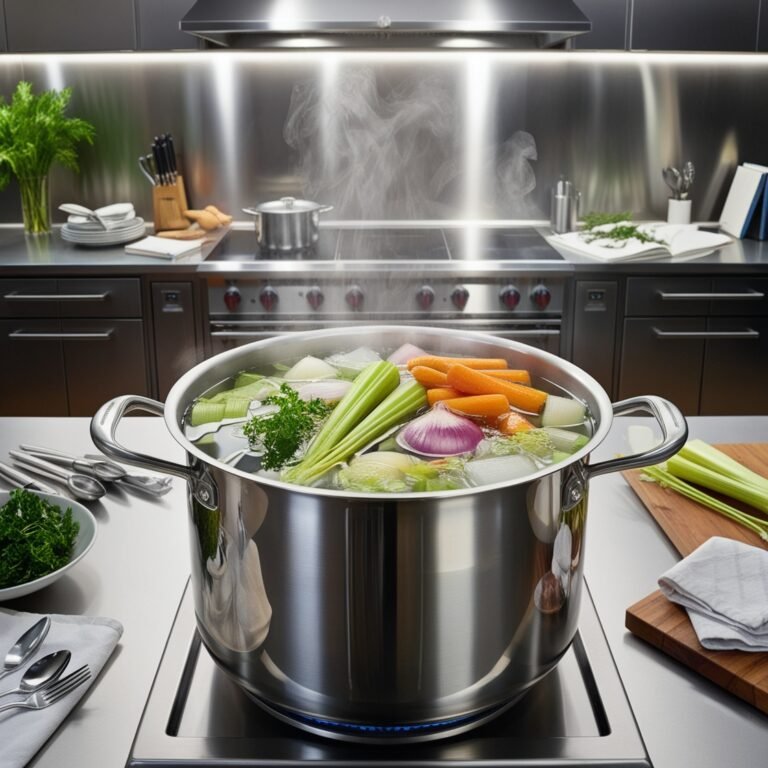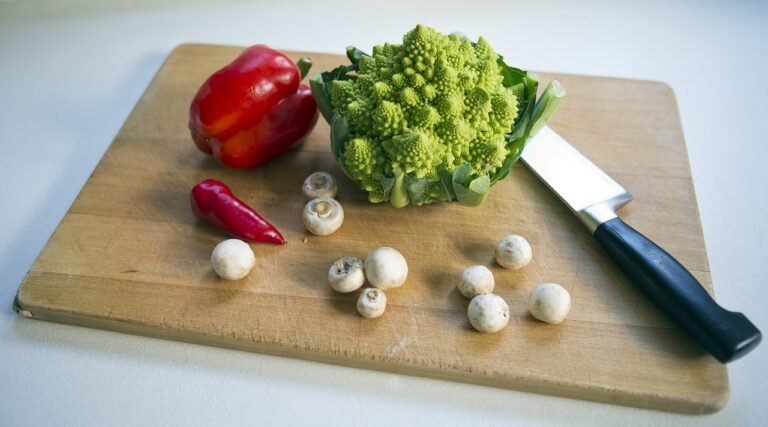How to Clean and Maintain Kitchen Tools Like a Pro
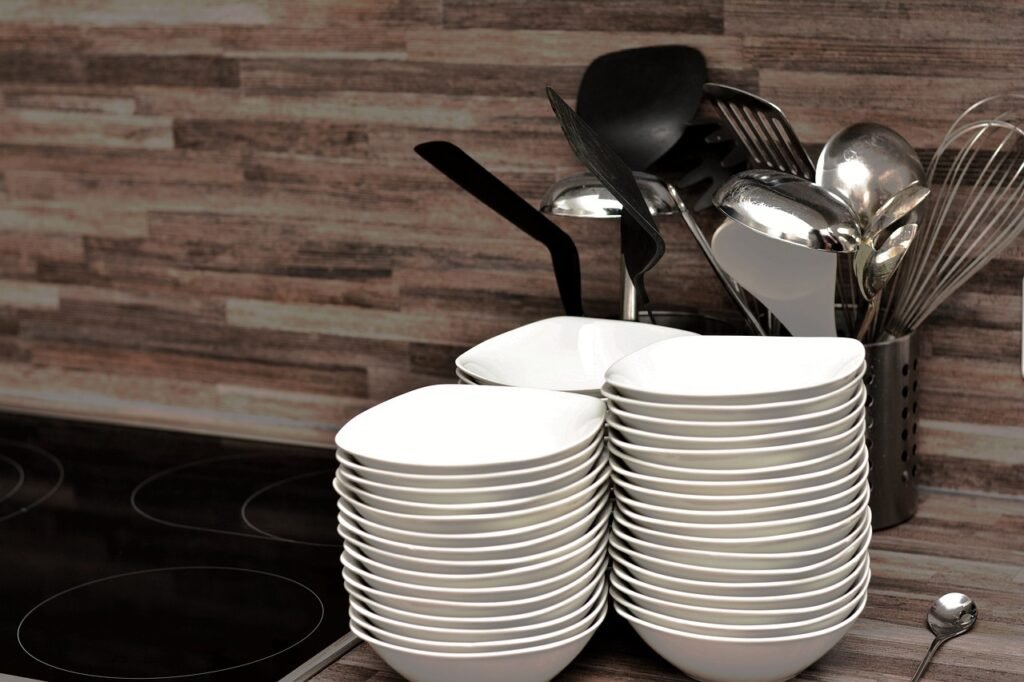
The Importance of Keeping Your Kitchen Tools Clean
Maintaining cleanliness in the kitchen is a fundamental aspect of food preparation and safety. Kitchen tools, including utensils, cutting boards, and cookware, can harbor bacteria and contaminants if not cleaned regularly. This accumulation of grime can lead to cross-contamination, where harmful pathogens are transferred from one food item to another. For instance, using a knife that has been in contact with raw meat and then slicing vegetables can pose a significant health risk. Adhering to proper cleaning protocols minimizes the chances of foodborne illnesses, making sanitation a priority in every kitchen.
Beyond food safety, the cleanliness of kitchen tools can greatly impact the overall flavor and quality of the meals prepared. Residues from previous meals can alter the tastes of fresh ingredients. For instance, if a pot is not cleaned thoroughly after cooking with strong spices, these flavors may linger and compromise subsequent dishes. By ensuring that all tools are washed and dried properly, cooks can preserve the integrity of their ingredients, leading to enhanced meal quality.
Regular cleaning routines also prolong the lifespan of kitchen tools. Utensils and equipment that are cared for experience less wear and tear, ensuring they perform optimally over time. For example, failing to clean cast iron pans can result in rust, while not maintaining stainless steel utensils can lead to tarnishing and discoloration. This investment in the longevity of tools is not only cost-effective but also ensures efficiency in food preparation.
Furthermore, a clean kitchen fosters a healthier cooking environment, which is crucial for both professional chefs and home cooks alike. Adhering to basic cleaning principles—such as sanitizing surfaces, using separate cutting boards for meats and vegetables, and promptly washing tools after use—creates an atmosphere conducive to food safety and culinary excellence. By integrating these practices into daily routines, cooks can operate with confidence and precision, achieving their culinary aspirations without compromising safety.
Essential Cleaning Products for Your Kitchen Utensils
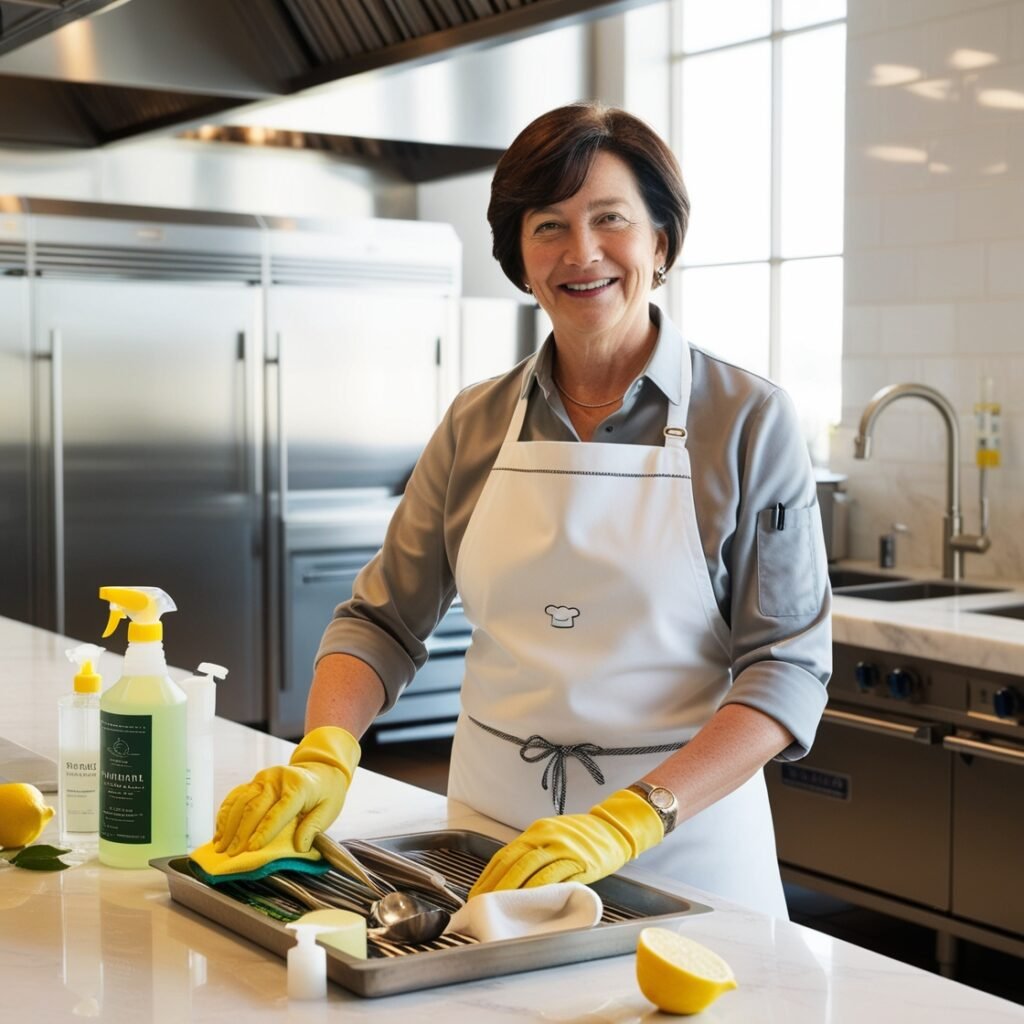
Maintaining kitchen utensils requires the right cleaning products to ensure both hygiene and longevity. First, sanitizers are fundamental in the kitchen as they kill harmful bacteria that can accumulate on utensils. Look for products containing active ingredients like quaternary ammonium compounds or hydrogen peroxide. These sanitizers help protect food safety by providing thorough disinfection. Popular brands include Eco-Smart and Lysol, which offer effective formulations for both home cooks and professional chefs.
Next, dish soaps are indispensable for routine cleaning. They come in various formulations, including eco-friendly options that utilize plant-based ingredients without harsh chemicals. These soaps effectively cut through grease and are gentle on hands, making them suitable for frequent use. Brands like Seventh Generation and Dawn provide a variety of scents and types to cater to individual preferences, ensuring that your kitchen tools are clean and residue-free.
Furthermore, scrubbers form an essential part of maintaining kitchen utensils. When selecting scrubbers, consider materials that are non-abrasive to avoid scratching surfaces. Soft sponges and nylon scrubbers are excellent choices particularly for nonstick cookware, while steel wool might be necessary for tough stains on stainless steel. The OXO Good Grips line offers a range of reliable options suitable for various utensils and materials.
In addition to general cleaning products, specialty cleaners cater specifically to particular materials. For wooden utensils, a mixture of mineral oil and beeswax keeps them conditioned and prevents cracks. For stainless steel, a cleaner with citric acid can effectively remove stains without damaging the surface. Nonstick surface cleaners, like the ones from Bar Keepers Friend, help maintain the integrity of your pans while ensuring they stay clean.
In summary, having a well-rounded arsenal of cleaning products tailored to the unique requirements of your kitchen utensils is key to effective maintenance. From eco-friendly options to powerful commercial cleaners, the right products will help ensure the longevity and cleanliness of your culinary tools.
Step-by-Step Guide to Cleaning Different Kitchen Tools

Cleaning kitchen tools is essential to maintaining their functionality and prolonging their lifespan. This comprehensive guide will provide you with step-by-step instructions for cleaning various kitchen utensils, ensuring they remain in optimal condition.
Knives
To clean knives effectively, begin by rinsing them under warm water to remove any food particles. Apply a small amount of mild dish soap to a soft sponge or cloth, and gently scrub the blade from the handle to the tip. Be careful not to exert too much pressure, which could result in damage to the blade. Rinse thoroughly with warm water to eliminate any soap residue. After cleaning, do not leave knives to air-dry; instead, wipe them dry with a soft cloth to prevent rusting, particularly for high-carbon steel knives. Store them safely in a knife block or using a magnetic strip.
Cutting Boards
Cutting boards vary in material—plastic, wood, or bamboo—and each requires a specific approach. For plastic boards, immerse them in hot, soapy water for thorough cleaning. For wooden cutting boards, avoid soaking; instead, wipe them with a damp cloth sprinkled with salt. This method effectively removes odors and stains without damaging the wood. After cleaning, ensure all boards are placed in a well-ventilated area to dry completely, which helps prevent bacterial growth.
Cookware
Cookware maintenance varies depending on its material. For stainless steel pots and pans, a mixture of vinegar and water can help remove stubborn stains. For cast iron cookware, avoid soap and use hot water to scrub while maintaining its seasoning. After cleaning, dry immediately to prevent rusting. Always refer to the manufacturer’s instructions when cleaning non-stick cookware to preserve its surface.
Baking Utensils
For baking utensils like spatulas and measuring cups, a simple soak in warm soapy water usually suffices. For stubborn stains, use a baking soda paste to gently scrub the affected areas. Rinse thoroughly, ensuring all sediment is removed, finally drying them in a dish rack or a clean towel to avoid moisture buildup that can lead to storage issues.
This comprehensive guide empowers you with the knowledge to clean your kitchen tools appropriately, ensuring each tool performs optimally and lasts longer. Mastering these techniques will allow you to maintain a clean and efficient kitchen environment.
Routine Maintenance Tips for Long-lasting Kitchen Tools
Maintaining kitchen tools is essential for ensuring their longevity and optimal performance. Implementing routine maintenance practices can significantly enhance the lifespan of your utensils, from knives to wooden tools. Understanding the specific care techniques for each type of kitchen tool plays a key role in preserving their functionality and appearance.
For instance, sharpening knives regularly is crucial to their performance. A sharp knife not only makes food preparation more efficient but also reduces the risk of accidents caused by excessive force. Invest in a good quality sharpening stone or a honing rod, and develop a routine that allows you to sharpen your knives every few months or as needed. Additionally, always ensure that knives are cleaned and dried immediately after use to prevent rust and corrosion.
Wooden kitchen tools, such as cutting boards and utensils, require special attention to maintain their natural integrity. It is advisable to oil wooden tools regularly with food-safe mineral oil. This practice prevents dryness and cracking, which can affect the usefulness and safety of these items. It is recommended to apply the oil once a month to keep the wood hydrated and to enhance its appearance.
Storage is another critical aspect of maintenance. Properly storing kitchen tools prevents wear and tear. Knives should be stored in a magnetic strip or a wooden block, rather than being tossed into a drawer. Similarly, keeping wooden utensils in a container or hanging them on a rack helps to prevent scratches and damage. Establishing a regular cleaning and maintenance schedule will ensure that these essential tools are always ready for use. By committing to these practices, you will not only extend the life of your kitchen tools but also enhance your overall cooking experience.
